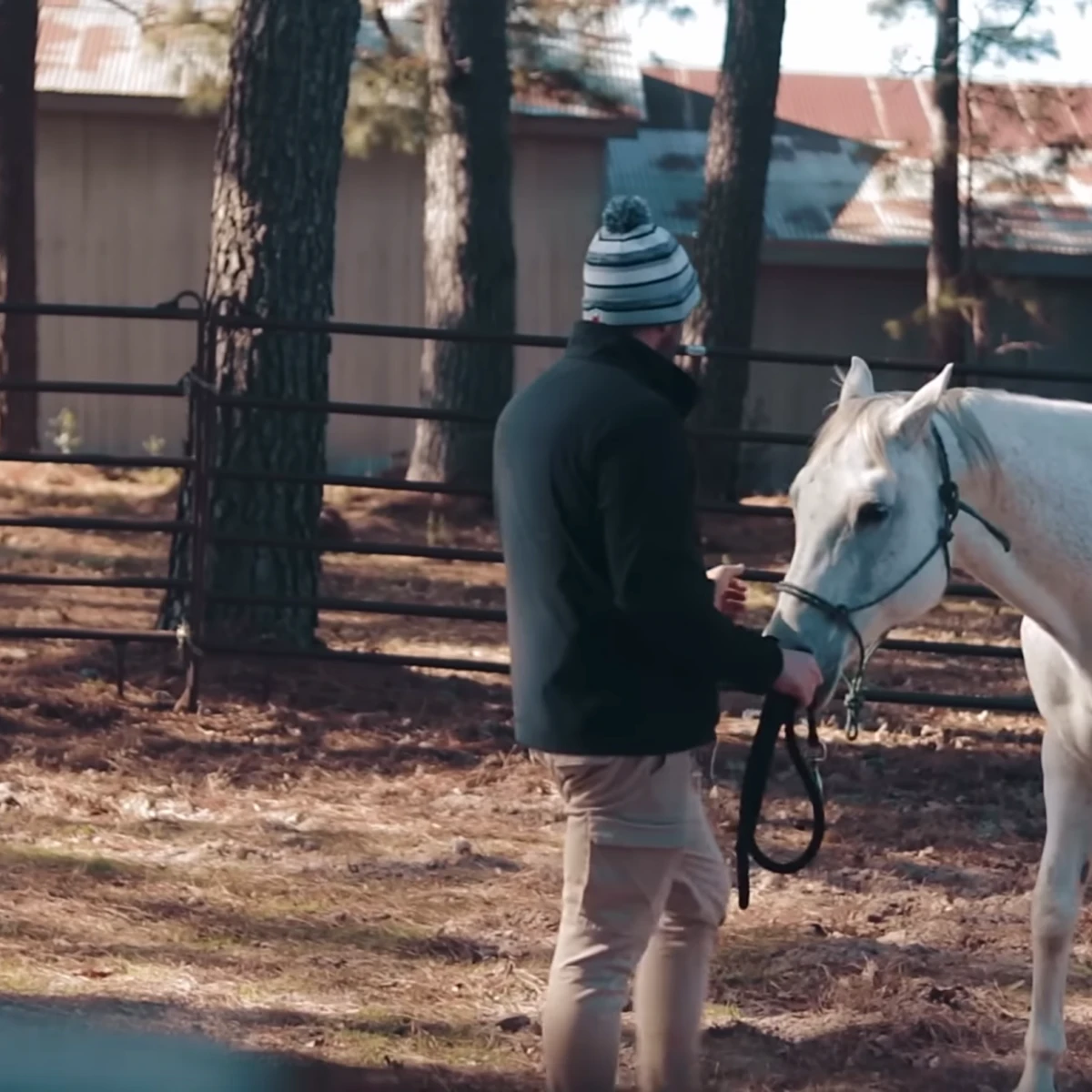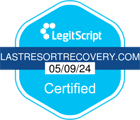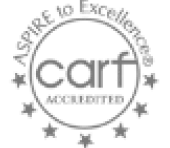We work with insurances. Verify yours now
Best Dual Diagnosis Treatment Center in Central Texas
ADHD residential treatment centers are specialized facilities where men can receive comprehensive care for ADHD and co-occurring conditions like substance use disorder in a structured, immersive environment. Unlike traditional outpatient therapy, residential and intensive outpatient programs provide a more intensive level of support, helping individuals develop the tools they need to manage ADHD symptoms while addressing underlying addiction issues in a safe and structured setting.


ADHD (Attention-Deficit/Hyperactivity Disorder) creates persistent patterns of inattention, hyperactivity, and impulsivity that significantly interfere with daily functioning and development.[1] While ADHD symptoms often begin in childhood, many men reach adulthood without proper diagnosis or treatment, leading to a lifetime of struggles with focus, organization, and emotional regulation.
Research shows that individuals with ADHD are significantly more likely to develop substance use disorders, with studies indicating rates of co-occurrence between 15-25% for alcohol use disorders and 5-10% for drug use disorders.[2] Many men with undiagnosed or untreated ADHD turn to alcohol or drugs to self-medicate, using substances to calm racing thoughts, improve focus, or manage the emotional dysregulation that comes with ADHD. Stimulants like cocaine or methamphetamine may temporarily improve concentration, while alcohol or marijuana might be used to quiet an overactive mind. However, this self-medication often worsens symptoms over time, leading to addiction and further complications.
This creates a complex co-occurring disorder where ADHD and substance use disorder feed into each other, making treatment more challenging but also more critical. That’s why dual diagnosis treatment—which addresses both ADHD and substance use simultaneously—is essential for long-term recovery.
At The Last Resort Recovery Center (TLR) in Texas, we specialize in comprehensive ADHD residential treatment for men, offering a structured environment where lasting healing begins.

It’s easy to convince yourself that you can handle your ADHD and other mental health symptoms alone. But if any of these sound familiar, a more intensive dual diagnosis treatment program may be the right step for you:
ADHD symptoms are interfering with your daily life, making it impossible to meet deadlines, maintain relationships, or achieve personal goals.
You experience intense mood swings, rejection sensitivity, or explosive anger that damages your relationships and career.
You rely on alcohol, drugs, or prescription stimulants to focus, calm down, or manage ADHD symptoms.
You make rash decisions with money, relationships, or career choices that you later regret.
You’ve tried medication or therapy but haven’t found long-term relief, or you’ve struggled with stimulant medication abuse.
Addressing these challenges requires specialized programs that understand the unique pressures faced by men struggling with ADHD and dual diagnosis and offer confidential, supportive care tailored to their needs.
ADHD is a complex neurobiological condition that affects your brain’s executive functioning, emotional regulation, and impulse control. If you’ve tried and failed to find relief from ADHD symptoms in an outpatient setting, it might be time to explore other options. Especially if substance use or past trauma are contributing factors.
At The Last Resort Recovery Center, our top-rated dual diagnosis residential treatment and outpatient programs provide:
Living with ADHD can feel chaotic and overwhelming, but structure creates clarity. Our residential and intensive outpatient levels of care provide consistent daily routines, organized therapy schedules, and systematic approaches to skill-building—helping men with ADHD regain control over their lives.
ADHD and substance use disorders create a complex co-occurring condition that requires specialized treatment. Our integrated dual diagnosis approach addresses both conditions simultaneously, helping you understand how ADHD symptoms may have contributed to substance use while developing healthy coping strategies that don’t rely on drugs or alcohol. We recognize that treating addiction without addressing underlying ADHD symptoms often leads to relapse, just as treating ADHD without addressing substance use leaves men vulnerable to continued self-medication.
Our 55-acre ranch provides the perfect environment for men struggling with dual diagnosis to engage in experiential therapies. The natural setting reduces overstimulation while hands-on activities like equine-assisted therapy help improve focus, emotional regulation, and interpersonal skills in ways that traditional talk therapy alone cannot achieve.
Business professionals and executives with ADHD face unique challenges, often experiencing high-stress work environments that exacerbate symptoms while maintaining careers that demand peak performance. Studies have shown that adults with ADHD are more likely to experience job instability, career underachievement, and workplace conflicts despite often having above-average intelligence and creativity.[3] The pressure to perform, combined with difficulties with time management, organization, and emotional regulation, can lead many professionals to self-medicate with stimulants, alcohol, or other substances, creating a dangerous co-occurring disorder.
At The Last Resort Recovery Center, we have seen business professionals thrive in our highly structured program, which provides the organization and accountability many need to succeed. Our professional-specific ADHD and substance use co-occurring disorder treatment programs are designed to:
Our goal is to provide comprehensive support that not only helps with ADHD and co-occurring addiction but also empowers professionals to build fulfilling, stable careers beyond treatment.
A hallmark of our programs at The Last Resort is our premiere equine therapy program. The benefits of equine therapy for ADHD and co-occurring substance use disorders are numerous, working by leveraging the unique characteristics of horses and their interactions with humans to facilitate healing and personal growth:[4]
Horses are highly attuned to non-verbal cues, forcing clients to become more aware of their own body language and emotions. This increased self-awareness is crucial for men with ADHD who often struggle with recognizing their own emotional states and impulses.
Horses respond instantly to a person’s emotional state and energy level, providing real-time feedback that can be more impactful than verbal therapy alone. This immediate mirroring helps clients with ADHD recognize how their hyperactivity or impulsiveness affects their interactions.
Developing a relationship with a horse requires patience, consistency, and clear communication—skills that men with ADHD often struggle with but are directly applicable to rebuilding human relationships damaged by addiction and impulsive behaviors.
Working with large animals can be both exciting and intimidating, providing opportunities to practice emotional regulation and impulse control techniques in a controlled environment, essential skills for managing ADHD symptoms.
Many aspects of working with horses serve as powerful metaphors for the recovery journey and ADHD management, allowing clients to gain insights into their condition and recovery process from substance abuse and co-occurring mental health disorders.
Successfully completing tasks with horses builds confidence and a sense of accomplishment, which can boost self-esteem and motivation for recovery—particularly important for men with ADHD who may have experienced years of academic or professional struggles.
Interacting with horses requires full attention and presence “in the moment,” helping clients with ADHD practice mindfulness and break cycles of distraction and hyperactivity.
orses don’t judge based on past behaviors, struggles with addiction, or ADHD symptoms, providing a safe space for clients to be vulnerable and authentic while practicing new skills for managing their co-occurring disorders.
At The Last Resort Recovery Center, we understand that every man’s grief experience is unique. Our outpatient programs offer customized treatment plans that allow men to recover at their own pace while receiving the guidance, structure, and support they need.
Paying for treatment should never be a barrier to healing from grief and addiction. There are several options available that do not put your family in financial jeopardy. The Last Resort is an in-network provider that works with most insurance companies.








We’re excited to share the positive experiences of our other community members, many of whom were where you are today – overwhelmed and uncertain. These are their stories. What will yours be?
Come experience a healing adventure like none other. Our expansive and secluded men’s-only ranch sits on 55 acres of central Texas beauty and is a tranquil sanctuary designed to promote rest, reflection, and recovery.
From rolling hills and ancient tree groves to warm ranch-style accommodations, you’ll feel right at home. You’ll enjoy a full range of amenities and experiences, including an outdoor pool oasis, a fitness studio, and a fully-stocked horse barn.
Our secondary location is a comfortable, modern facility with shared and private spaces that is home to all of our outpatient services. This center is conveniently located in south Austin off Menchaca Rd.
When grief, alongside drug or alcohol addiction, takes root in your life, it colors everything you do, how you show up at work, at home, and for yourself. Your family often feels the worst of it. You know this is not what you had in mind for your life. There has to be a healthier way to manage your emotional distress and overcome the challenges you face.
As the opioid epidemic has continued to explode, so has the treatment industry. Unfortunately, not all are of the same quality or the same caliber.
Accredited status for our addiction treatment center confirms that the services we offer meet or exceed the official standards of practice established by the state and other governing organizations by passing a series of detailed assessments.
Understanding accreditation affords you and your loved ones the confidence to pursue long-term recovery with renewed peace of mind.




If you or a loved one is battling alcohol or drug addiction, you’re in the right place. Even if you’ve tried other treatment programs or think you’re at the end of the line, this is the community you need to thrive. We can’t wait to facilitate your recovery and be part of your success story.
As part of our commitment to clients and families, we share high-quality resources, industry-related news, and practical education with those in our circle of influence. We hope these resources equip and inspire those who read them to take positive, healthy action.
The goal of all content is to empower and equip without compromise. Every resource The Last Resort creates is not supported by sponsorship or advertisers and is therefore free of bias and murky agendas.
All of our educational materials are produced or reviewed by the team at The Last Resort. We staff and consult with subject matter experts and industry professionals to ensure all that is shared is accurate and accessible.
ADHD affects the brain’s executive functioning and impulse control, making individuals more vulnerable to substance use. Many men with ADHD self-medicate with stimulants to improve focus or alcohol/marijuana to calm racing thoughts. This creates a cycle where substances temporarily relieve ADHD symptoms but ultimately worsen both conditions, requiring specialized dual diagnosis treatment to address both disorders simultaneously.
Yes, treating both conditions together is actually more effective than addressing them separately. Our integrated approach recognizes that ADHD symptoms often drive substance use, while addiction can worsen ADHD symptoms. Through our comprehensive program, men learn healthy coping strategies for ADHD symptoms while developing the tools needed for lasting addiction recovery.
Men with ADHD often struggle with structure and organization in their daily lives. Our residential program provides the structured environment that helps retrain the brain’s executive functioning while removing triggers and substances. The immersive nature allows for intensive therapy, skill development, and the establishment of healthy routines that are essential for managing both ADHD symptoms and maintaining sobriety long-term.
[1] American Psychiatric Association. (2013). Diagnostic and statistical manual of mental disorders (5th ed.). Arlington, VA: American Psychiatric Publishing.
[2] Charach, A., Yeung, E., Climans, T., & Lillie, E. (2011). Childhood attention-deficit/hyperactivity disorder and future substance use disorders: comparative meta-analyses. Journal of the American Academy of Child and Adolescent Psychiatry, 50(1), 9–21. https://doi.org/10.1016/j.jaac.2010.09.019
[3] Barkley, R. A., & Murphy, K. R. (2010). Impairment in occupational functioning and adult ADHD: the predictive utility of executive function (EF) ratings versus EF tests. Archives of clinical neuropsychology : the official journal of the National Academy of Neuropsychologists, 25(3), 157–173. https://doi.org/10.1093/arclin/acq014
[4] Scopa, C., Contalbrigo, L., Greco, A., Lanatà, A., Scilingo, E. P., & Baragli, P. (2019). Emotional Transfer in Human-Horse Interaction: New Perspectives on Equine Assisted Interventions. Animals : an open access journal from MDPI, 9(12), 1030. https://doi.org/10.3390/ani9121030
Our admission specialists are ready to talk with you 24/7 about starting the journey. We always treat each caller with the utmost respect, detailing your treatment options and respecting your confidentiality.
Based on your assessment, we’ll work together to create a customized treatment plan that addresses your needs, ensuring you have the support and resources necessary to achieve your goals.
The Last Resort is in-network with most major insurance companies. Fill out the form below to verify your healthcare coverage within the hour.
We’ll welcome you to our campus and start laying the groundwork for a successful, long-term recovery.